Remembering Stuart O'Grady's unlikely, fairytale 2007 Paris-Roubaix win: 'It was like coming into a colosseum'
The Australian produced one of the great 21st century Roubaix shocks on the hottest ever edition of the race
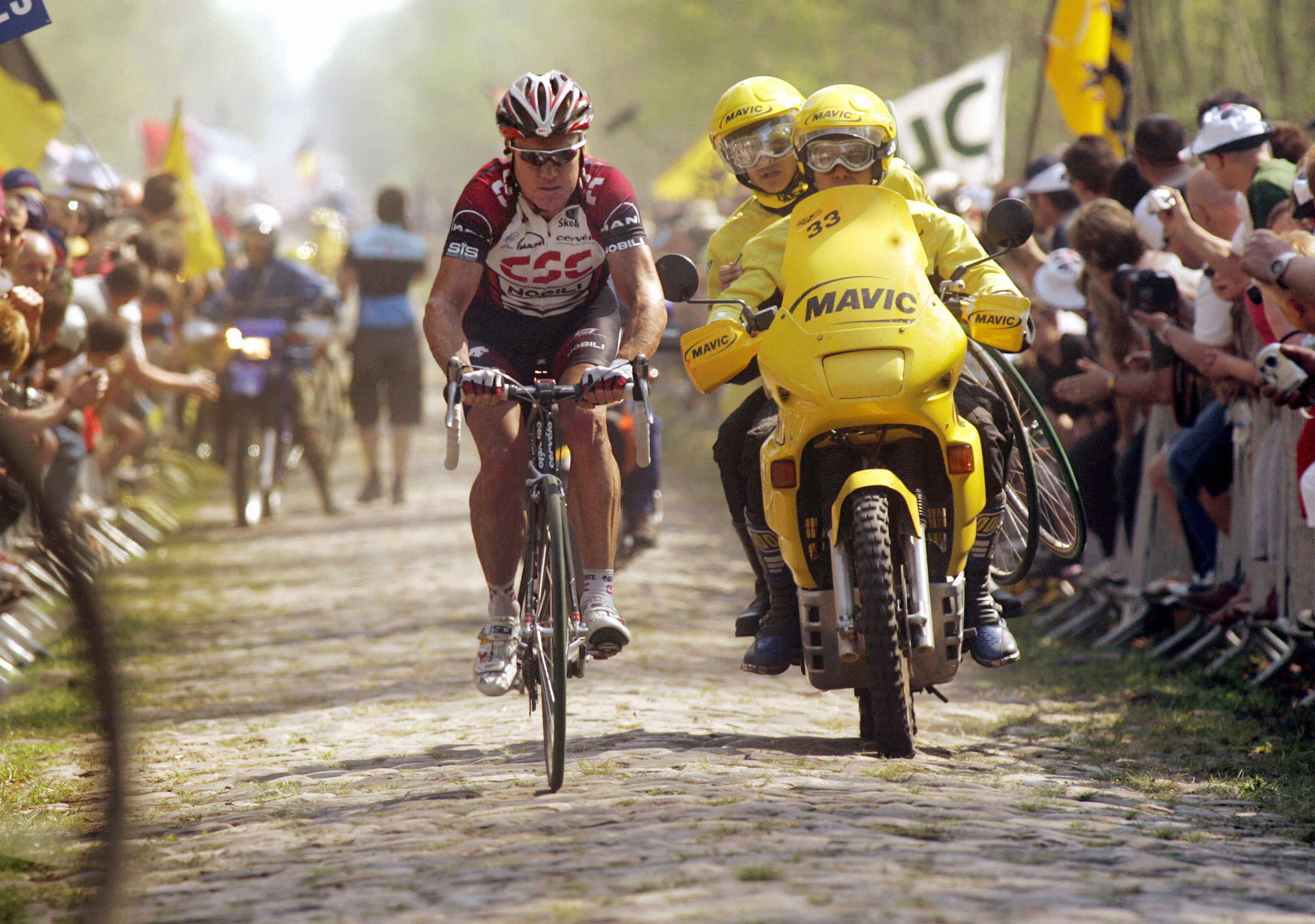

The Valentine’s Day of cycling is whatever day that Paris-Roubaix happens to fall on. It’s the day that sets hearts fluttering; the day that many a Cupid has dreamt about impressing upon their wannabe lover.
First impressions can be a deal-breaker, the difference between something happening and a look consigned to history, never again to be reflected upon. The first sight of Paris-Roubaix for Stuart O’Grady was one of love.
“When I was a kid living in Australia, one of the VHSs that my family would bring down for us to watch was a video of Roubaix in the 80s,” the Australian tells Cycling Weekly. “I was instantly captivated: the adventure of it mesmerised me.”
But just like a teenager seeing their fantasy in the street and being too shocked to say anything remotely coherent, O’Grady didn’t have a chance. “There was no way in my wildest dreams that I was thinking I could race Roubaix, let alone win it," he rues.
His first doubt, however, was overcome when he joined GAN in 1995, the French team who had won the race in 1993 with Gilbert Duclos-Lassalle. He had found a team equally enamoured by the mistress they call the Hell of the North.
“It was on their hit-list: to win the biggest race on the calendar was all they spoke about," O'Grady recalls. "They weren’t going to win the Tour [de France] or Milan-San Remo, but Roubaix was everything. 15 years later, after watching those videos, I was a pro living in Europe and riding for a French team that had Roubaix as a priority. It immediately went to the top of my list.”
It was the girl he had posters of in his room; he never had a realistic opportunity, but that didn’t stop him thinking about it. He was permitted a couple of first dates, a chance to try his luck. He says: “The first few years I raced it, I loved it, but I never dreamt about winning it. Well, of course I dreamed about that, but I didn’t think I was socially big enough to be able to win it.”
Get The Leadout Newsletter
The latest race content, interviews, features, reviews and expert buying guides, direct to your inbox!
In the ensuing years, he developed into one of Australia’s finest ever track cyclists, winning four Olympic medals including gold in Athens in 2004 and seven Commonwealth Games gongs. On the road, he rode himself to 29 victories, including two stages of the Tour de France. He wasn’t the prettiest boy in the class, but he had it within him to seduce Roubaix, just like a few of his close mates had done so.
In 2007, riding for CSC and largely in support of his team-mate Fabian Cancellera who had won the 2006 edition of Roubaix, O’Grady hit a hot streak of form in the spring. His confidence was high: he finished fifth at Milan-San Remo, third at Dwars door Vlaanderen and 10th at the Tour of Flanders.
He had initiated conversation that maybe he could tempt Roubaix into falling for a little bit of romanticism, the allure that occasionally it becomes a sucker for, unable to resist the lucid moves. It became clear that O’Grady was not out of Roubaix’s league, but to attract the race towards temptation would require game and strategy of a lifetime.
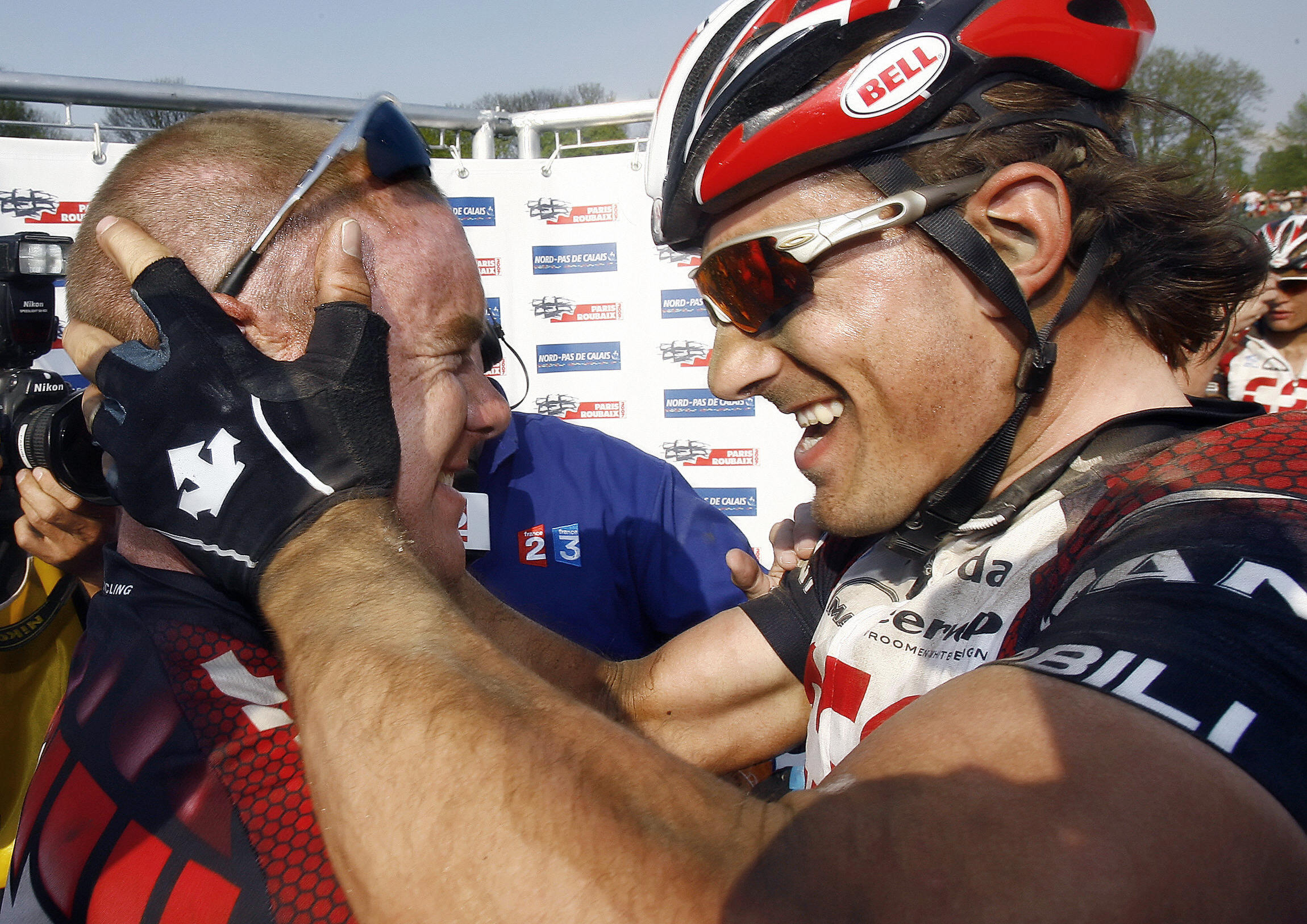
He worked his way into the race’s first breakaway group containing 34 riders, aided by wingmen Matti Breschel and Luke Roberts. The stud of the group, Cancellera, was behind in the peloton, but the plan detailed that he would join later become the other half of the showpiece.
“I had to make sure that I was in the right break, and also have the form of my life,” O’Grady recounts. “I had finished in the top-10 in every race in the build-up so I knew I had the form. I was rooming with Fabian but never thought about winning it myself. It wasn’t on the table, it wasn’t supposed to happen. My goal was to help Fabian win. The only way that I could win was for me to get in the break and fly under the radar.”
In the days before instant gratification and decisions based on a cursory glance before a swipe to the left or right, Roubaix permitted O’Grady time to impress. The race even let him have a moment of horror, the chat-up line that could screw everything; he punctured. “I was stuck in nowhere’s land, but I used my experience and time trialling capabilities.”
His pre-thought killer line of attacking 48km from the finish on the Mons-en-Pévèle lay in tatters, but he remained hopeful. He joined the chase group of Tom Boonen and Cancellera. “Fabian looked gone, he was covered in salt,” O'Grady remembers. “He asked me how I felt and I said good. He said ‘go for it’, so I attacked and off I went.”
With 34km to go, O’Grady latched onto an attack by Steffen Wesemann and Roger Hammond. He powered towards the group of Juan Antonio Flecha, the race’s fancied favourite, and when Wesemenn made another dig for victory, O’Grady reacted, shadowing him and then distancing him.
He had 23km left to ride into the arms of Roubaix who was beginning to be persuaded that O’Grady’s long-time pursuit wasn’t such a bad idea. He cruised through sectors five and four, gained an advantage of a minute and victory looked assured. He was finally about to score with the one he had always dreamt about.
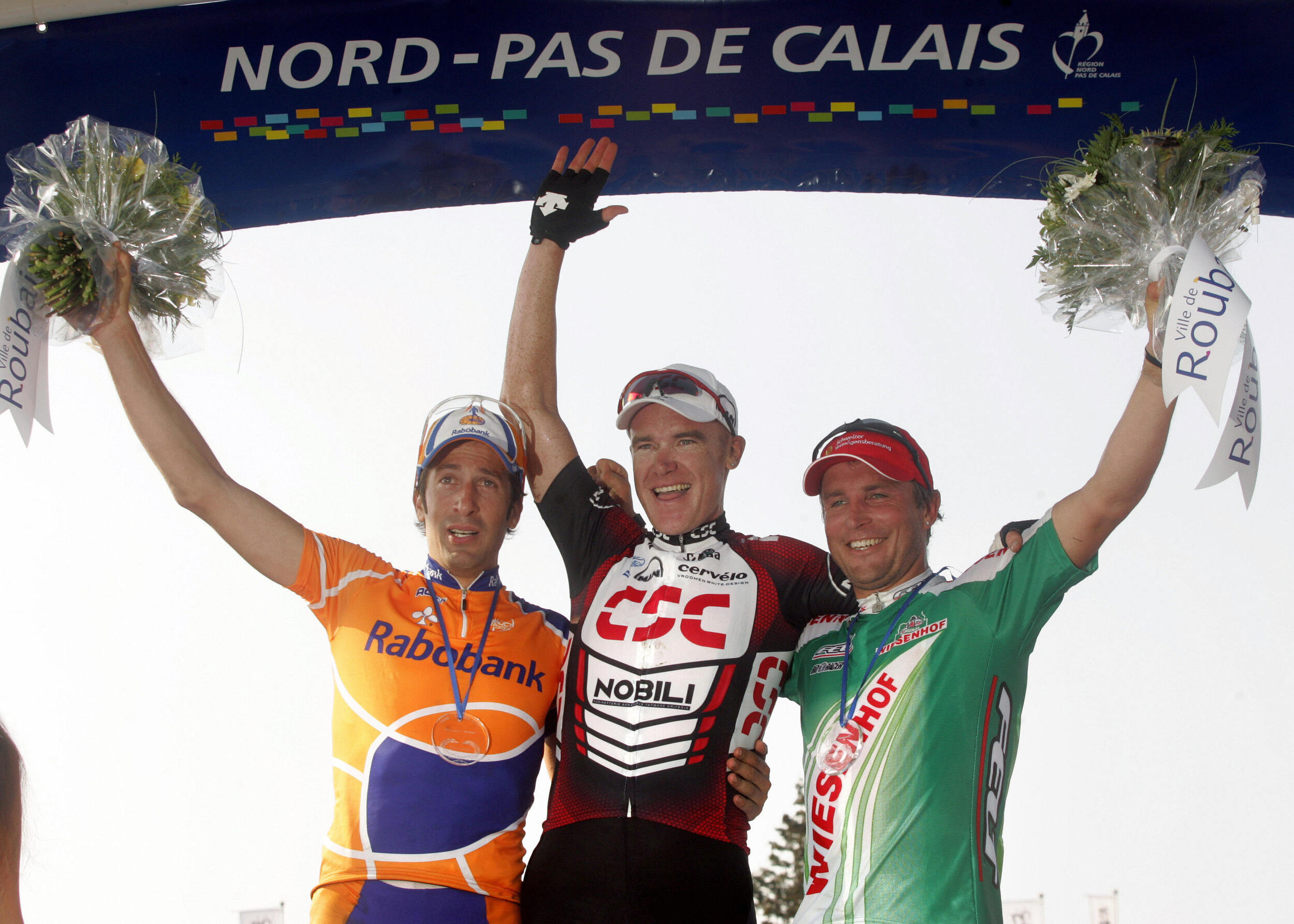
He says: “Even with four kilometres left, I wasn’t sure. That’s Roubaix: if you put yourself in the right position, and never give up, you’re always in the game, but I was still nervous.”
It was dawning on him, though, that his move had been played right. He was aware that if you don’t shoot, you don’t score and it’s why he volleyed his effort into the top corner. “If you’re keeping yourself in the game, conserving, one big attack wins the bike race,” he adds.
“I had one bullet, a gut feeling, no tactics pre-written, the directors said in the past that we had these tactics, but I didn’t need any of that. It was killer instinct - I saw an opportunity and I went for it. You don’t wait in Classics; you don’t get a second chance. When you see the goal, you have to go for it.”
Under 27 degree heat – the warmest Roubaix on record and weather conditions that certainly aided him – he rode into the velodrome, a winner-in-waiting. “It was the best moment of my life on the bike. Coming into the velodrome, just knowing that this was all for me.
“There was so much going through my mind, and my wife and son were there for the first time ever. Knowing that they were there, knowing that I didn’t have to sprint, knowing that I didn’t have to use my track nous.
“It’s a s**thole in the middle of nowhere, but for a cycling enthusiast, the hairs go up on your neck when you enter the velodrome. You picture Merckx, Hinault, Kelly coming in, all the legends of history, and you get flashbacks.
“It’s like coming into a colosseum for a bike rider, knowing the people who have ridden there before. It’s mythical, it’s historic and it’s part of peoples’ livelihoods and their calendars. I never thought I’d win it, but all the stars aligned.”
Roubaix had been succumbed to the love of O’Grady, the first time it had embraced an Australian. A romantic fairytale complete.

Thank you for reading 20 articles this month* Join now for unlimited access
Enjoy your first month for just £1 / $1 / €1
*Read 5 free articles per month without a subscription

Join now for unlimited access
Try first month for just £1 / $1 / €1
A freelance sports journalist and podcaster, you'll mostly find Chris's byline attached to news scoops, profile interviews and long reads across a variety of different publications. He has been writing regularly for Cycling Weekly since 2013. In 2024 he released a seven-part podcast documentary, Ghost in the Machine, about motor doping in cycling.
Previously a ski, hiking and cycling guide in the Canadian Rockies and Spanish Pyrenees, he almost certainly holds the record for the most number of interviews conducted from snowy mountains. He lives in Valencia, Spain.
-
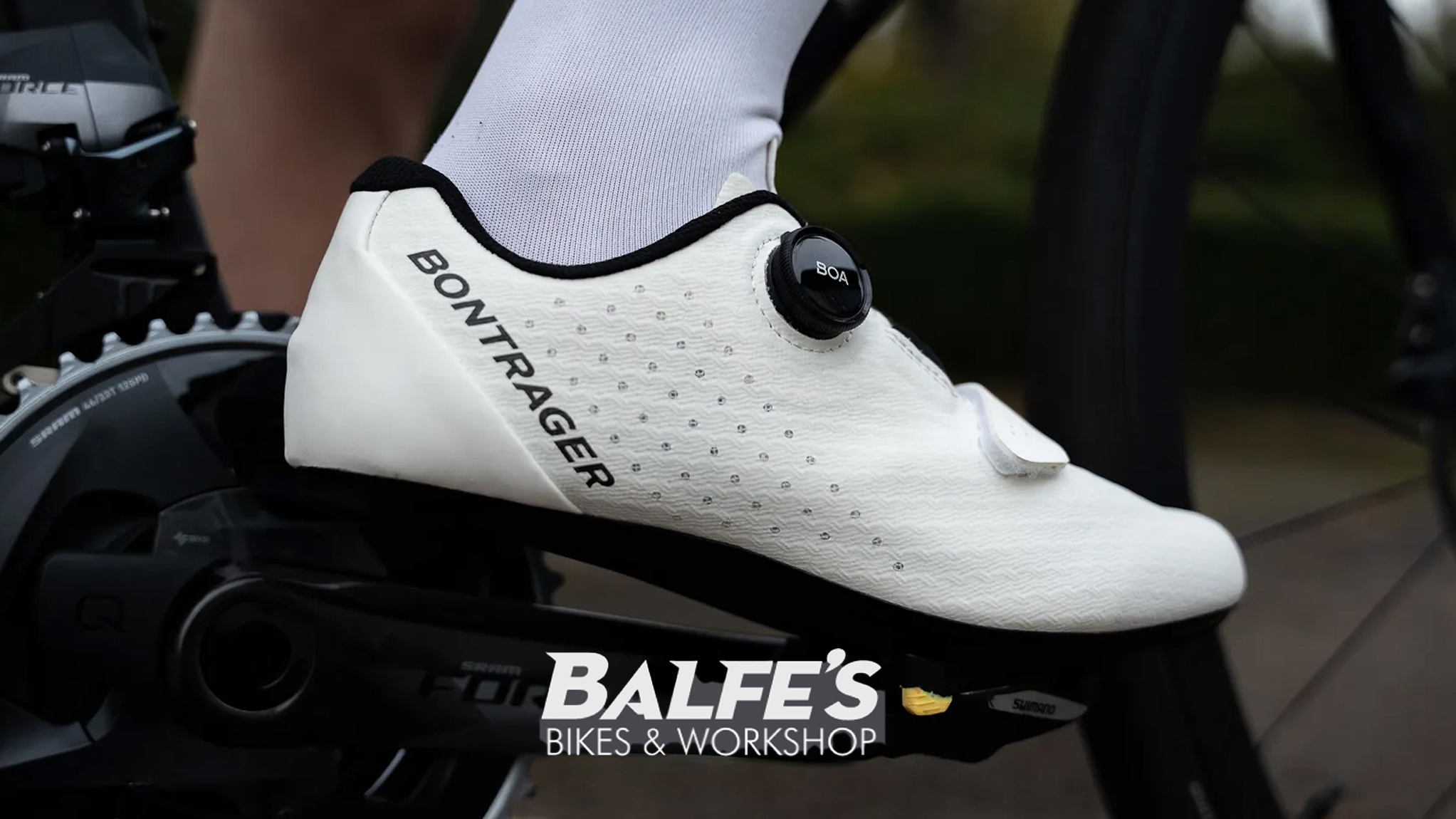 Gear up for your best summer of riding – Balfe's Bikes has up to 54% off Bontrager shoes, helmets, lights and much more
Gear up for your best summer of riding – Balfe's Bikes has up to 54% off Bontrager shoes, helmets, lights and much moreSupported It's not just Bontrager, Balfe's has a huge selection of discounted kit from the best cycling brands including Trek, Specialized, Giant and Castelli all with big reductions
By Paul Brett
-
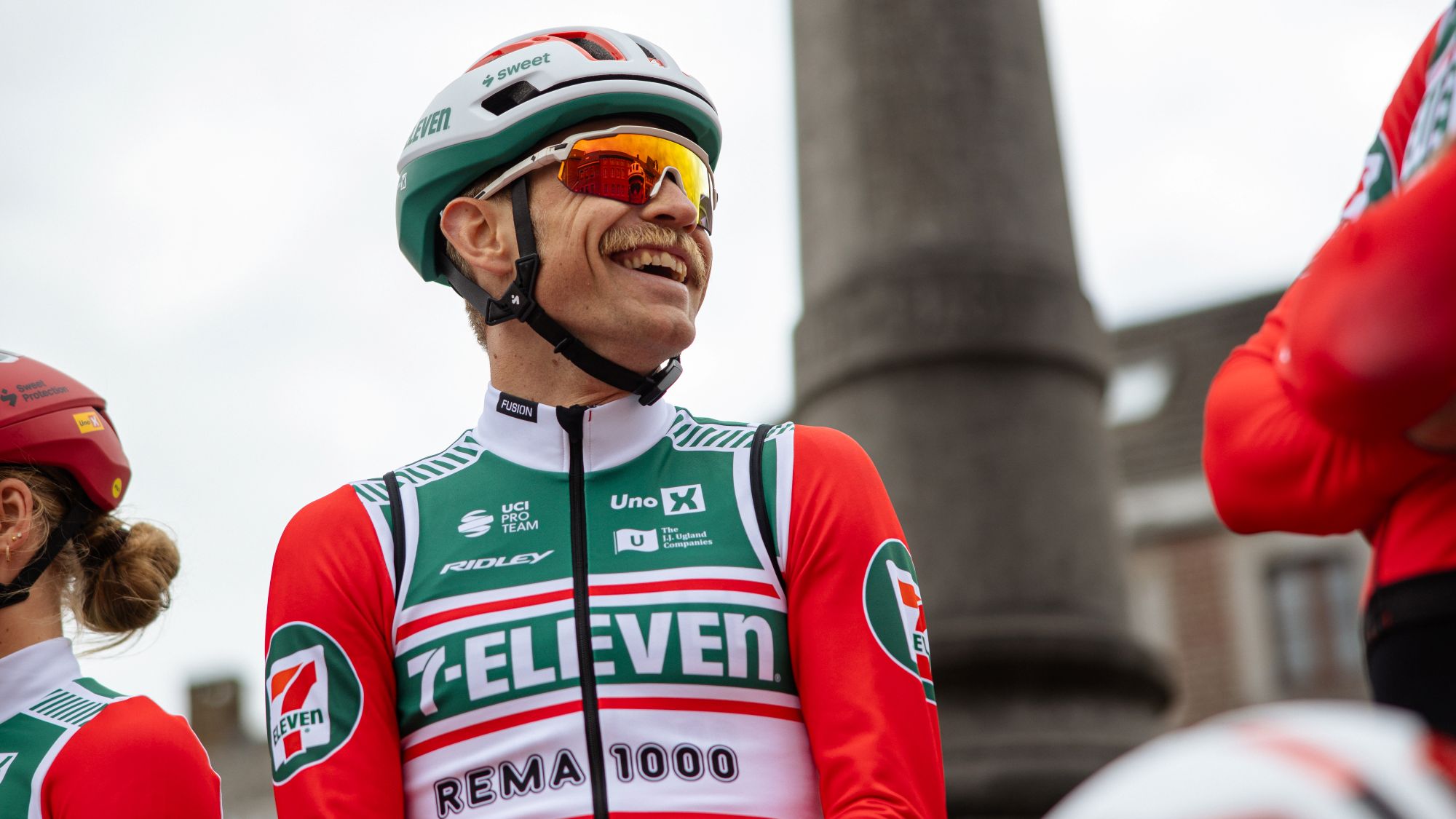 7-Eleven returns to the peloton for one day only at Liège-Bastogne-Liège
7-Eleven returns to the peloton for one day only at Liège-Bastogne-LiègeUno-X Mobility to rebrand as 7-Eleven for Sunday's Monument to pay tribute to iconic American team from the 1980s
By Tom Thewlis
-
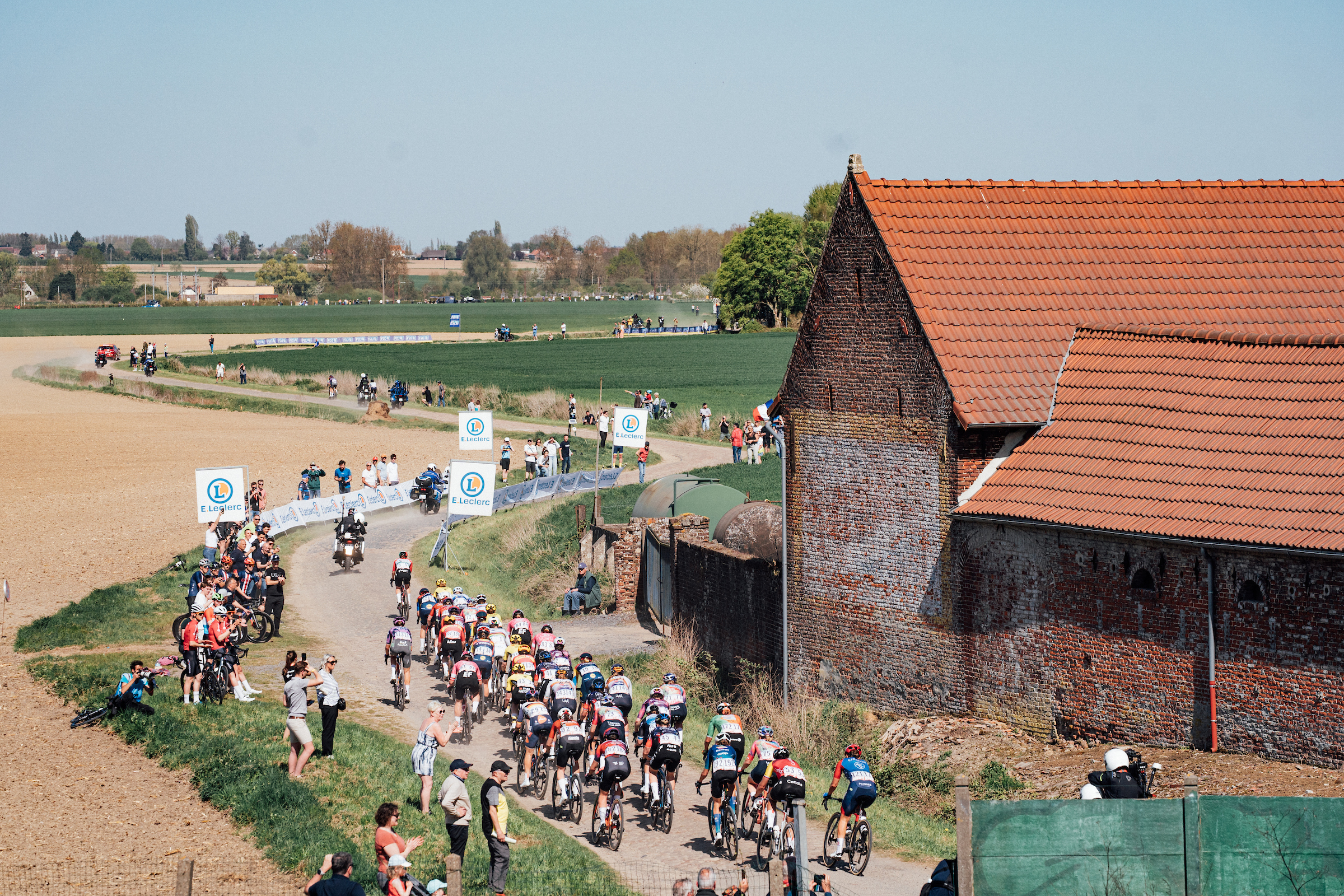 I went to Paris-Roubaix Femmes and was shocked at how it is still treated as secondary to the men’s race
I went to Paris-Roubaix Femmes and was shocked at how it is still treated as secondary to the men’s raceThe women’s version of the Hell of the North is five years old, but needs to be put more on equal footing with the men
By Adam Becket
-
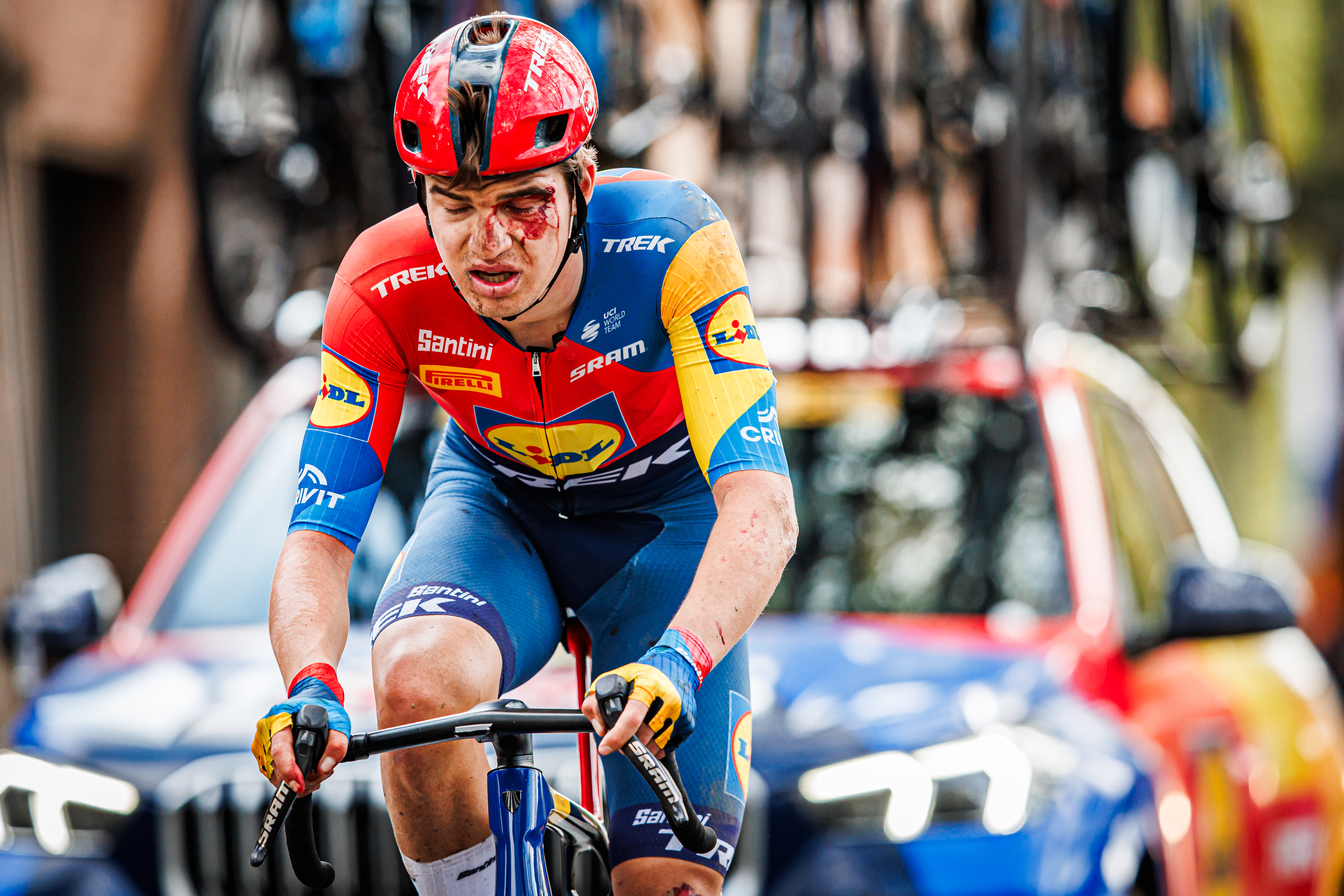 Broken hips, hands, and collarbones: Paris-Roubaix's lengthy injury list lays bare brutality of race
Broken hips, hands, and collarbones: Paris-Roubaix's lengthy injury list lays bare brutality of race"It probably wasn't the best idea to continue," says one of weekend's many wounded riders
By Tom Davidson
-
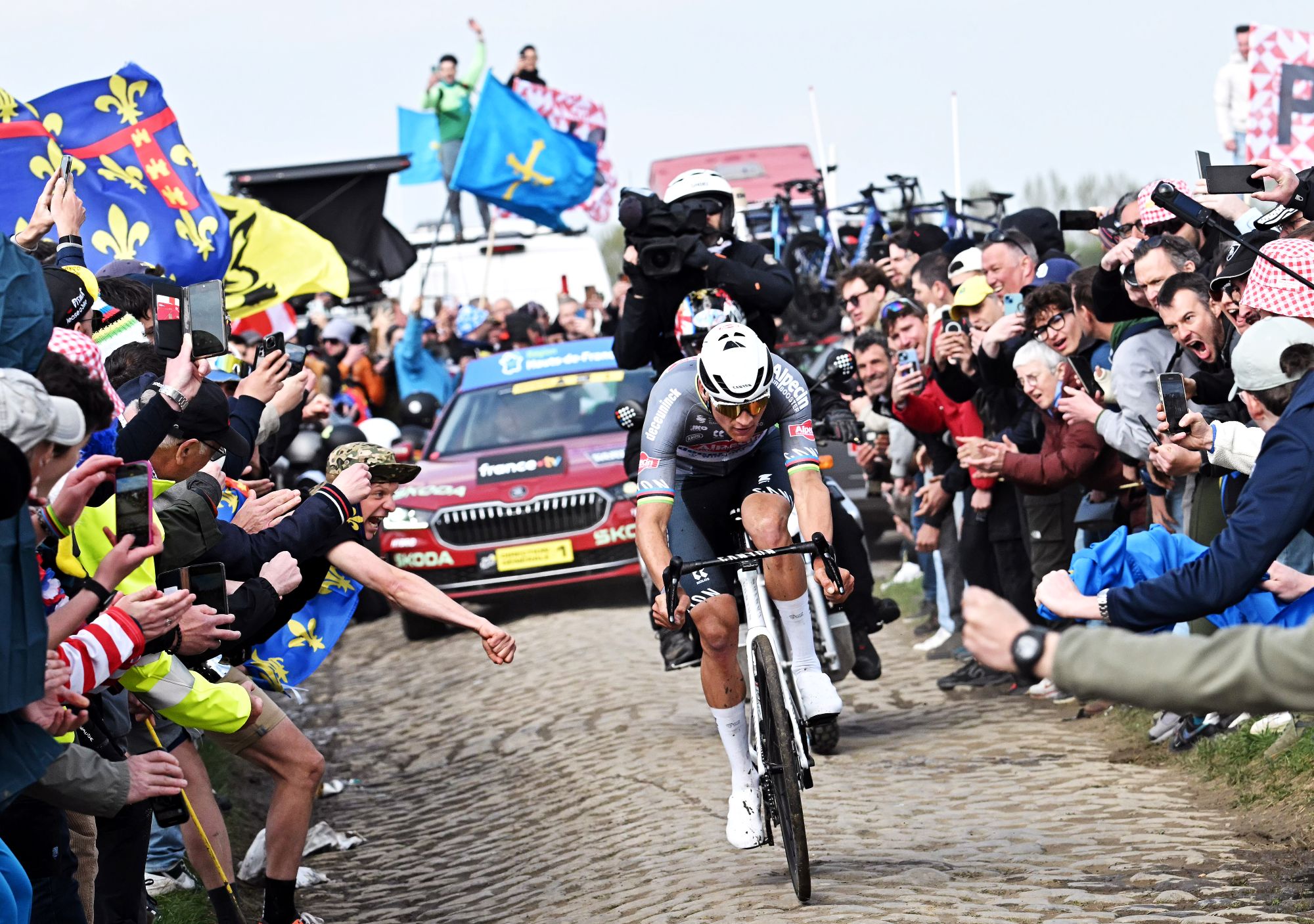 Professional riders need more protection from mindless 'fans' at major races to avoid another Mathieu van der Poel Paris-Roubaix bottle incident
Professional riders need more protection from mindless 'fans' at major races to avoid another Mathieu van der Poel Paris-Roubaix bottle incidentCycling's authorities must do everything within their power to prevent spectators from assaulting riders
By Tom Thewlis
-
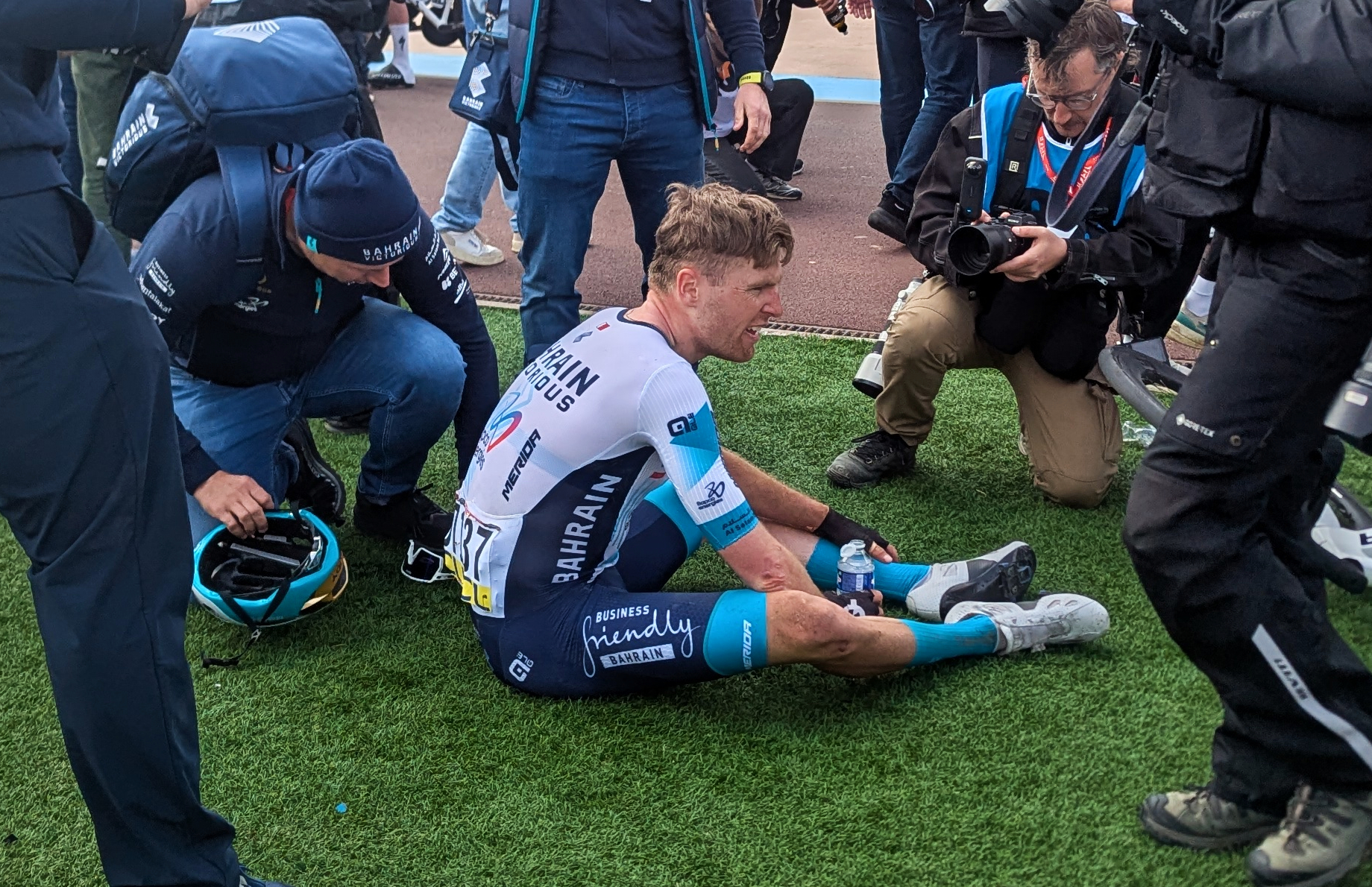 'I'll take a top 10, that's alright in the end' - Fred Wright finishes best of British at Paris-Roubaix
'I'll take a top 10, that's alright in the end' - Fred Wright finishes best of British at Paris-RoubaixBahrain-Victorious rider came back from a mechanical on the Arenberg to place ninth
By Adam Becket
-
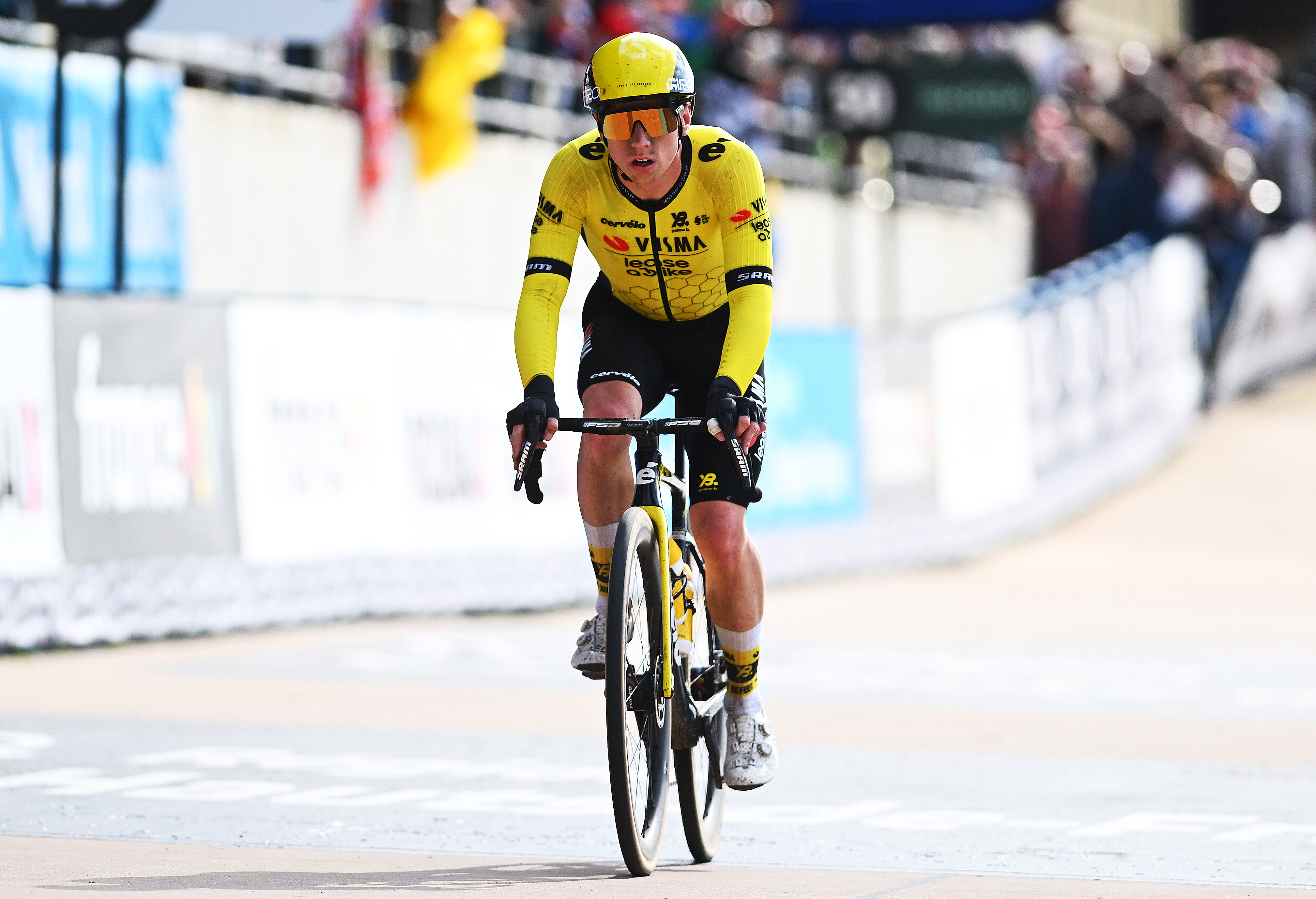 'This is the furthest ride I've actually ever done' - Matthew Brennan lights up Paris-Roubaix at 19 years old
'This is the furthest ride I've actually ever done' - Matthew Brennan lights up Paris-Roubaix at 19 years oldThe day's youngest rider reflects on 'killer' Monument debut
By Tom Davidson
-
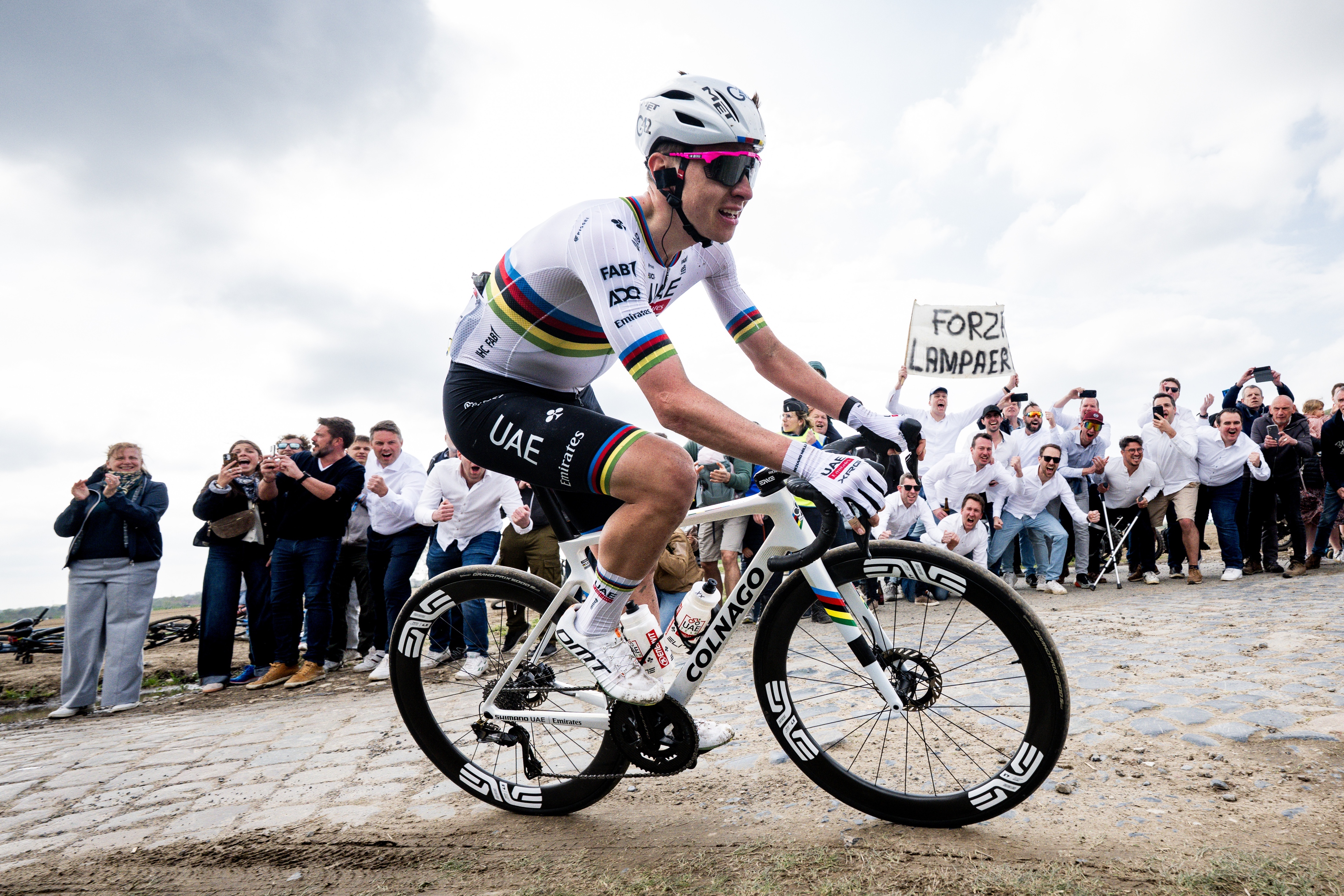 'One of the hardest races I've ever done in my life' - Tadej Pogačar finishes runner-up on Paris-Roubaix debut after crash
'One of the hardest races I've ever done in my life' - Tadej Pogačar finishes runner-up on Paris-Roubaix debut after crashWorld champion reacts to 'extremely hard' battle with Mathieu van der Poel
By Tom Davidson
-
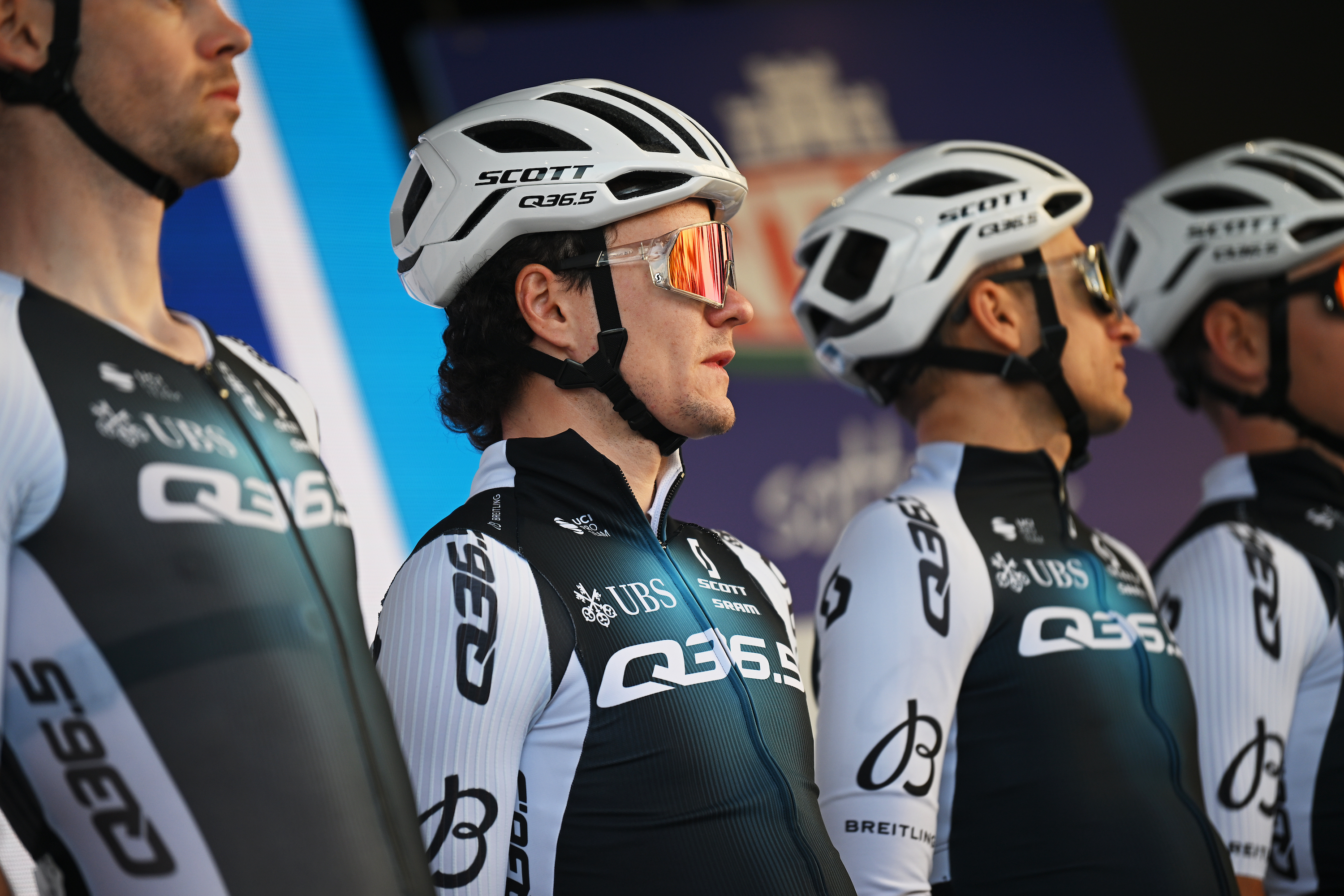 'I thought it would be dark by the time I got here' - Joey Pidcock, the last rider to finish Paris-Roubaix, on his brutal day out
'I thought it would be dark by the time I got here' - Joey Pidcock, the last rider to finish Paris-Roubaix, on his brutal day outQ36.5 rider finishes outside time limit, but still completes race with lap of the Roubaix Velodrome
By Adam Becket
-
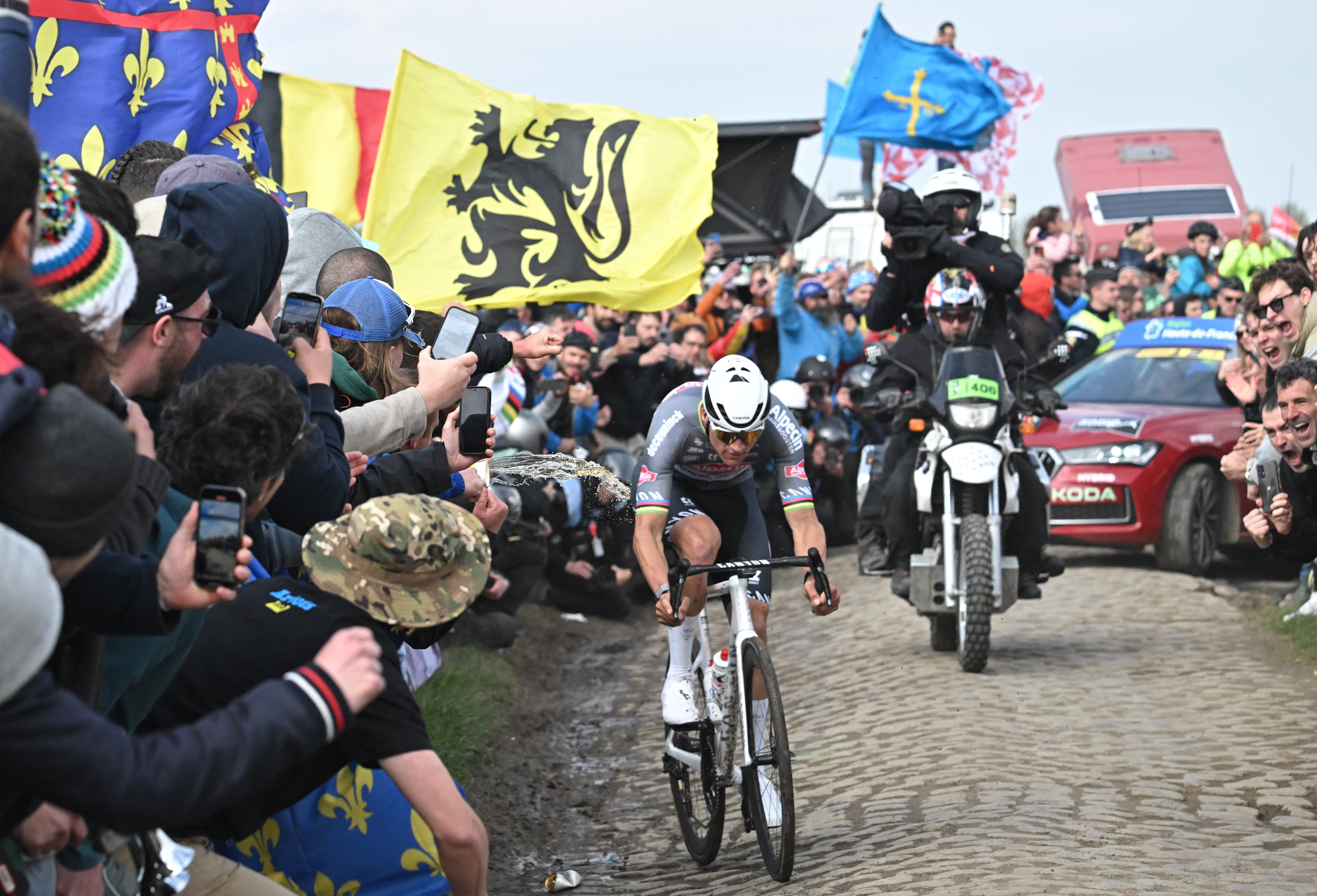 'It was like a stone hitting my face' - Mathieu van der Poel calls for 'legal action' after bottle incident at Paris-Roubaix
'It was like a stone hitting my face' - Mathieu van der Poel calls for 'legal action' after bottle incident at Paris-RoubaixThe winner was hit by a bottle in the face on Templeuve, sector 8b
By Adam Becket